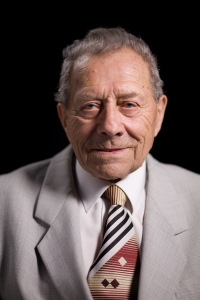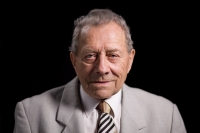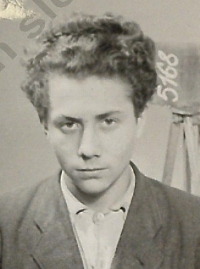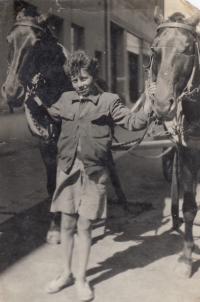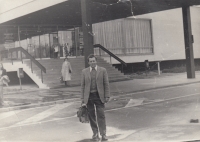A hall full of people demanded the death penalty for us

Download image
Miloslav Kopfstein was born on June 10, 1935 in Adamov, České Budějovice district. He grew up in Novohradská Street in Budějovice, where he experienced air raids caused by Allied troops in the spring of 1945 and the liberation by the Red Army. After the war, they moved with their family to the nearby village of Mladé. In 1950, the witness finished primary school and took the position of an auxiliary worker in the screw shop. In March 1951, he became involved in arson attacks organized to sabotage the socialization of the village. He was arrested shortly afterwards and sentenced to three and a half years in prison as a juvenile. He served his sentence in prisons in Zámrsk and Žacléř. Here he trained as a miner and a mining locksmith in deep coal mines. In August 1953, he was released on parole for good behavior and extraordinary work ethic. He worked briefly on the silo in the agricultural purchase. From 1954 to 1956 he completed basic military service with the Technical Battalions in coal mines in the Ostrava region. From 1973 until his retirement, he held the position of maintenance worker and driver at the Faculty of Education and later at the Faculty of Health and Social Studies. After 1989, he was fully rehabilitated. In 2020, Miloslav Kopfstein lived in České Budějovice.
